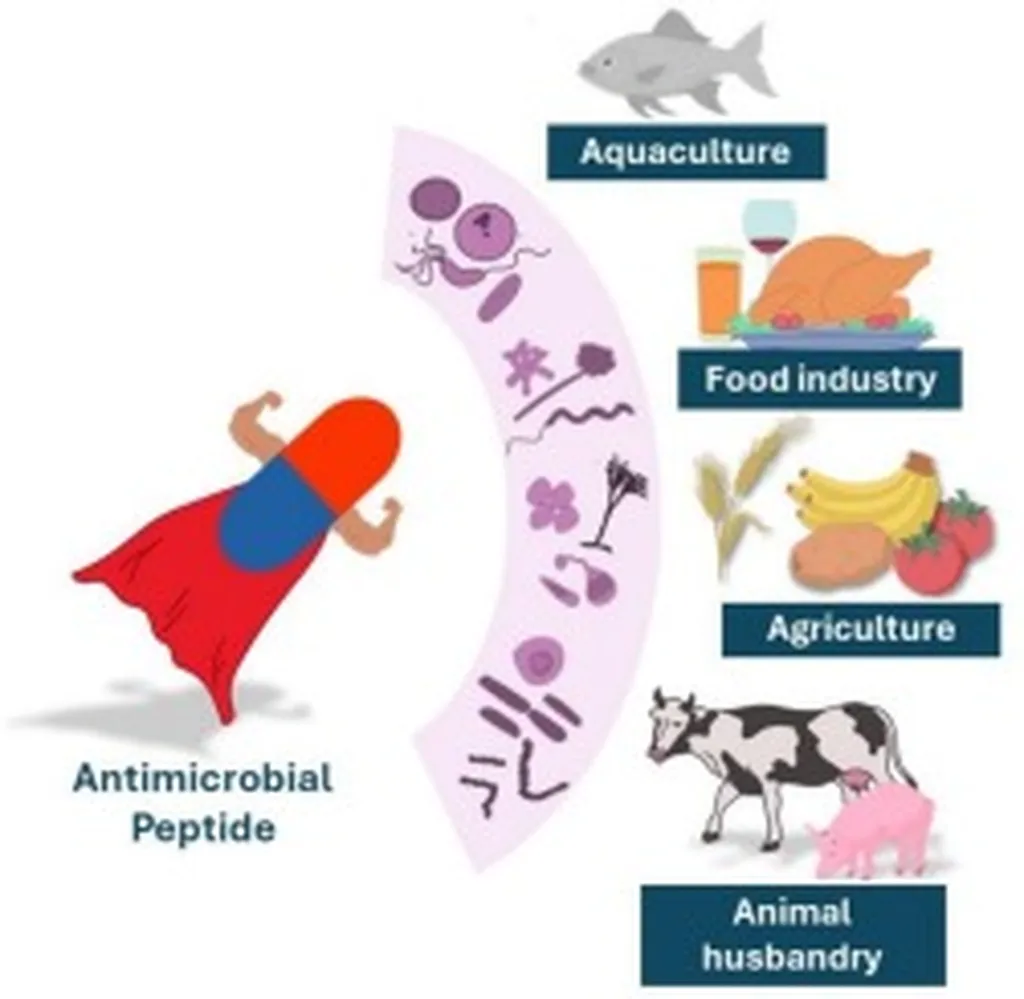In a groundbreaking development that could revolutionize the agricultural sector, researchers have successfully engineered the yeast Pichia pastoris to produce enterocin P, a potent antimicrobial peptide. This innovation, detailed in a recent study published in the Journal of Epigenetics, opens new avenues for controlling pathogenic bacteria in agriculture and beyond.
Enterocin P, a class IIa bacteriocin, is known for its broad-spectrum antimicrobial activity. The study, led by Abbas Tanhaeian, a Ph.D. in Agricultural Biotechnology from Shahrood University of Technology in Iran, demonstrates the successful genomic transformation and expression of enterocin P in Pichia pastoris. This achievement is a significant step forward in the production of recombinant proteins for agricultural applications.
The research involved ligating the synthetic sequence of enterocin P into the pPICZαA vector, which was then amplified in Escherichia coli strain DH5α. The recombinant plasmid was sequenced to confirm ligation and check for mutations. The linearized plasmid was subsequently electroporated into Pichia pastoris, leading to the production of the recombinant protein.
“Our study shows that recombinant enterocin P can be produced in high concentrations using Pichia pastoris,” Tanhaeian explained. “This opens up exciting possibilities for its use in controlling pathogenic bacteria in agriculture.”
The antimicrobial activity of the purified protein was evaluated against eight avian pathogen bacteria, with the recombinant enterocin P showing significant inhibition, particularly against Salmonella typhimurium and E. coli O157. This finding is crucial for the agricultural sector, where these pathogens can cause significant economic losses.
The production of enterocin P in Pichia pastoris offers a scalable and cost-effective method for obtaining this valuable antimicrobial peptide. “The potential for high-concentration production of enterocin P using Pichia pastoris is a game-changer,” Tanhaeian added. “It paves the way for its use in various agricultural and industrial applications.”
The study’s findings suggest that recombinant enterocin P could be used to develop new strategies for controlling bacterial infections in livestock, thereby improving animal health and productivity. Additionally, the antimicrobial properties of enterocin P could be harnessed to develop novel food preservatives, reducing food waste and enhancing food safety.
As the agricultural sector continues to face challenges from pathogenic bacteria, the development of effective and sustainable control measures is more critical than ever. The successful production of enterocin P in Pichia pastoris represents a significant advancement in this area, offering a promising solution for combating bacterial infections in agriculture.
This research not only highlights the potential of recombinant proteins in agriculture but also underscores the importance of continued investment in biotechnology. As the field evolves, the development of new and innovative solutions will be essential for meeting the challenges of the future. The study, led by Abbas Tanhaeian from Shahrood University of Technology and published in the Journal of Epigenetics, marks a significant milestone in this ongoing journey.

